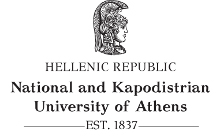Menu
- 4TH NAXOS SUMMER SCHOOL
-
COURSES
- THÓRHALLUR EYTHÓRSSON: OLD NORSE AND ITS OLD GERMANIC RELATIVES
- OLGA FISCHER: OLD ENGLISH AND HOW IT DEVELOPED SYNTACTICALLY IN THE LATER MIDDLE AND MODERN PERIODS
- ELLY VAN GELDEREN: OLD AND MIDDLE ENGLISH: MORPHOSYNTAX IN MANUSCRIPTS
- DAG HAUG: ANCIENT GREEK (MORPHO-)SYNTAX
- NIKOLAOS LAVIDAS: RECONSTRUCTING PROTO-INDO-EUROPEAN MORPHO-SYNTAX: AN INTRODUCTION
- DONKA MINKOVA: OLD AND MIDDLE ENGLISH PHONOLOGY
- SVETLANA PETROVA: CLAUSE STRUCTURE AND WORD ORDER VARIATION IN OLD HIGH GERMAN
- IOANNA SITARIDOU: THE SYNTACTIC EVOLUTION OF THE ROMANCE LANGUAGES
- MASTER CLASSES
- WORKSHOP: LANGUAGE CHANGE IN INDO-EUROPEAN
- OPEN TALK
- SCHEDULE
- PRACTICAL INFO
- REGISTRATION
- PREVIOUS YEARS
- NEWS & UPDATES
- SUPPORTED BY
- SUPPORTED BY (SPONSORS)
- ORGANIZERS & CONTACT
